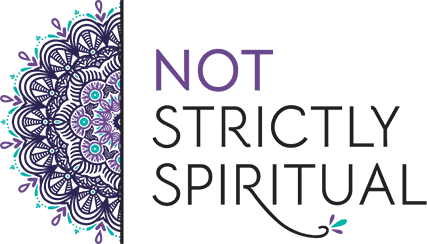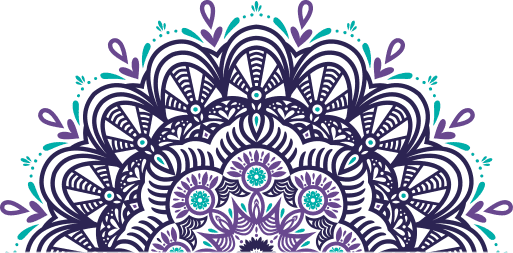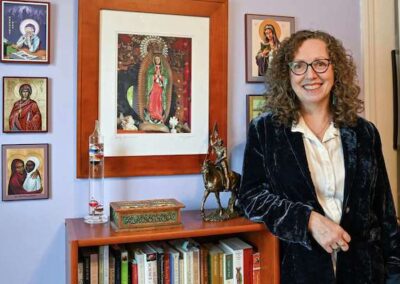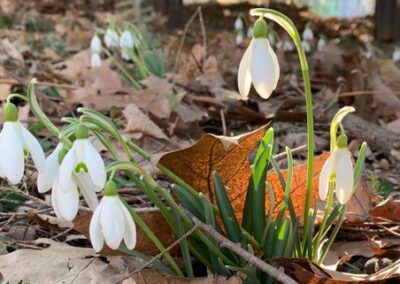The Jersey Shore may seem to be an unlikely place to read a spiritual book about unmasking your “true self,” but that is exactly what I’ve been doing while I sit in my sand chair watching Chiara make “soup” in the 24-inch wading pool that we drag with us to the beach each day. (Can you believe we actually bring a pool to the beach? Yes, we’re insane.)
I just finished “Becoming Who You Are,” by James Martin, S.J., one of my all-time favorite writers. I first discovered him when a friend gave me “My Life With the Saints” a couple of Christmases ago. I followed that up with Father Martin’s book on devotions. But “Becoming Who You Are” combines some of my most favorite spiritual thinkers in one slim volume: Thomas Merton, Henri Nouwen, Mother Teresa, and, last but certainly not least, Jesus. Here is the random paragraph that caught my eye before I started officially reading this book. It was all I needed to see to know that this book was for me:
“Much of this journey involved my letting go of the need to be somebody else. Nobody in particular, mind you, just a feeling that I needed to be different. Early in the novitiate, I thought that being holy meant changing an essential part of who I was, suppressing my personality, not building on it. I was eradicating my natural desires and inclinations, rather than asking God to sanctify and even perfect them. Here’s the way I thought about it: I knew that I certainly wasn’t a holy person, so therefore being holy must mean being a different person.” (p. 29)
Wow, how long have I thought pretty much the exact same thing? For most of my life, or at least my adult life, I have figured that the only way to become a better person was to become a different person. Now, the odd thing about that is that if you asked me who I would want to be if I could be anyone else, I would tell you — as I have told other people when asked this very question — that I would not want to be anyone but me, doing the job I’m doing. So it’s not that I want to be someone specific; I just want to be someone different from the me I am right now. This book, however, looks at the possibility, the reality, that becoming a “better” person is not about changing who we are but about becoming who we already are down in our hearts and souls, the selves that God created us to be.
Martin quotes Merton from “Seeds of Contemplation” saying: “For me to be a saint means to be myself.” The key is to figure out who we are, dropping the masks we put on for the benefit of other people, or maybe for the benefit of our own egos.
The beach is actually the perfect place to do that kind of thinking, although typically it would probably be best to do serious soul searching sans the sand toys and boogie boards and constant quest for hermit crabs. Still, when all else fails, it can work despite the most ridiculous distractions: Think 3-year-old needing to go to the bathroom in the middle of the incredibly wide Wildwood beach with nary a bathroom or pull-up in site. Think arguing with Olivia that she must release the eight hermit crabs in her bucket before they all boil in their own ocean water right before our eyes (She finally returned them to the sea, saying in true Jesus fashion, I love every one of them just the same. OK, maybe Jesus didn’t say it just like that, but you know what I mean.)
I am closing in on 46 years old and I will readily admit that I still do not know my “true self,” although I do think I’m coming much closer as I get older. The scales are tipping away from what I think I should be toward what I know I am. If you’ve ever felt that way, even for a minute, pick up Father Martin’s book by clicking HERE and read it, and then read it again.







